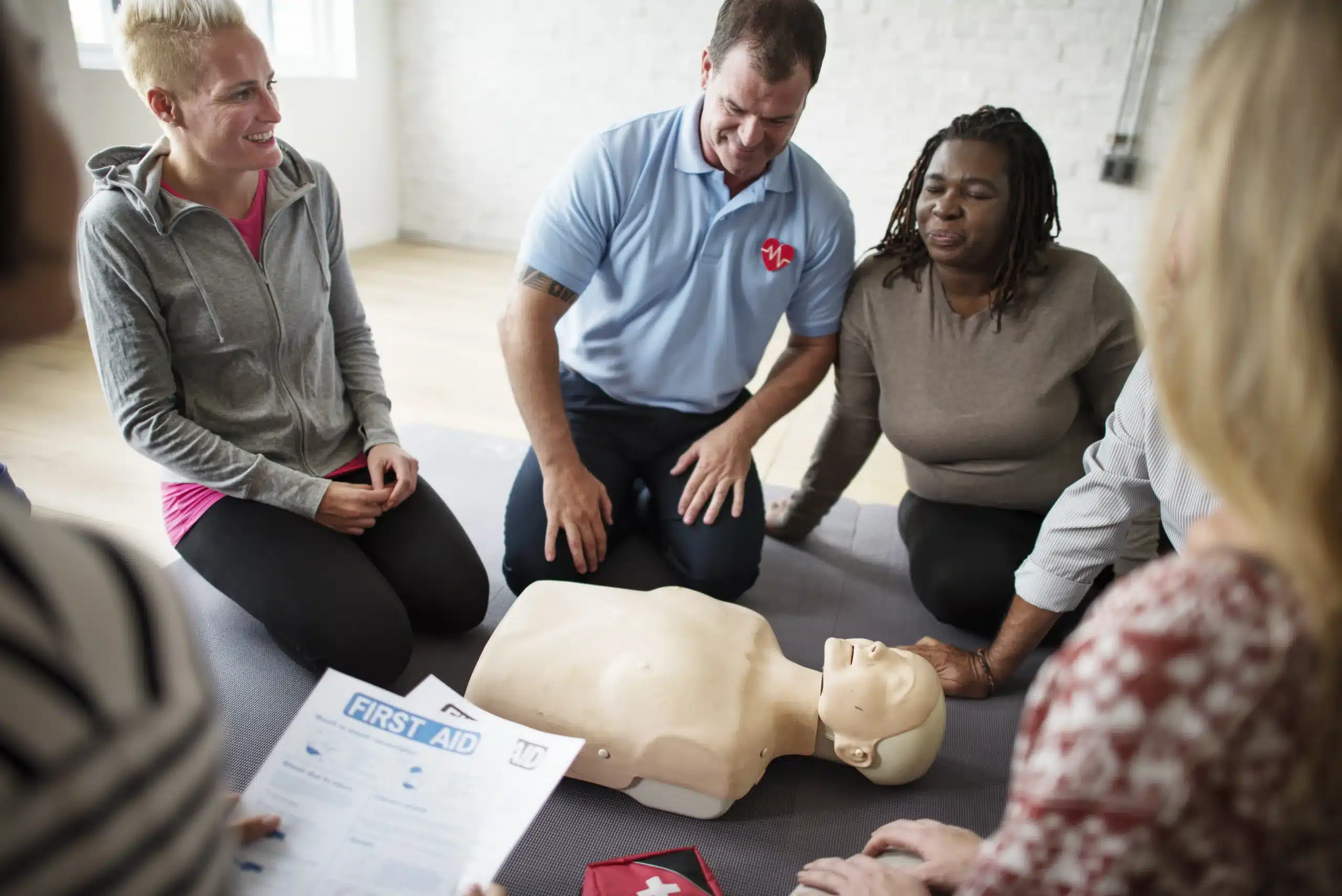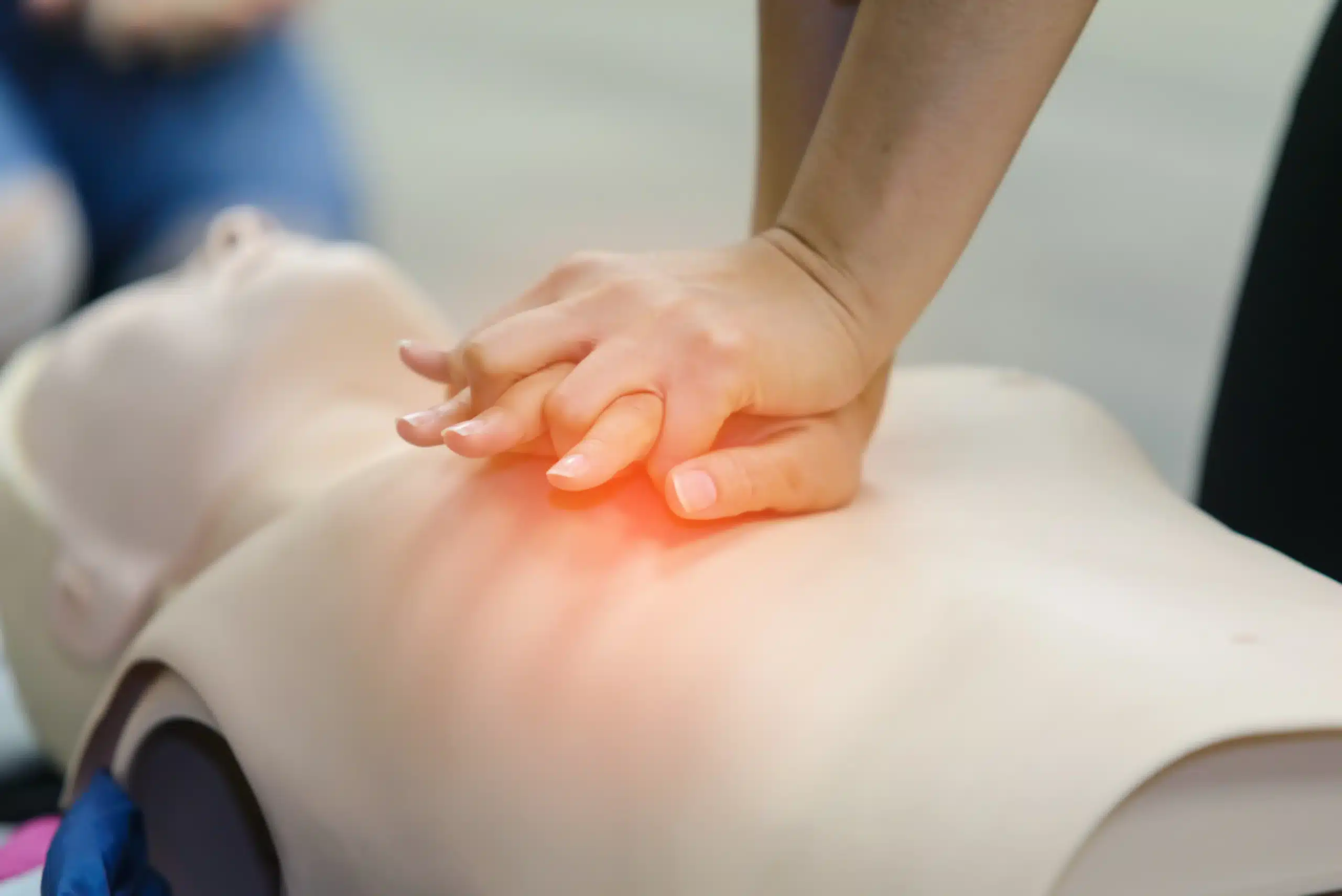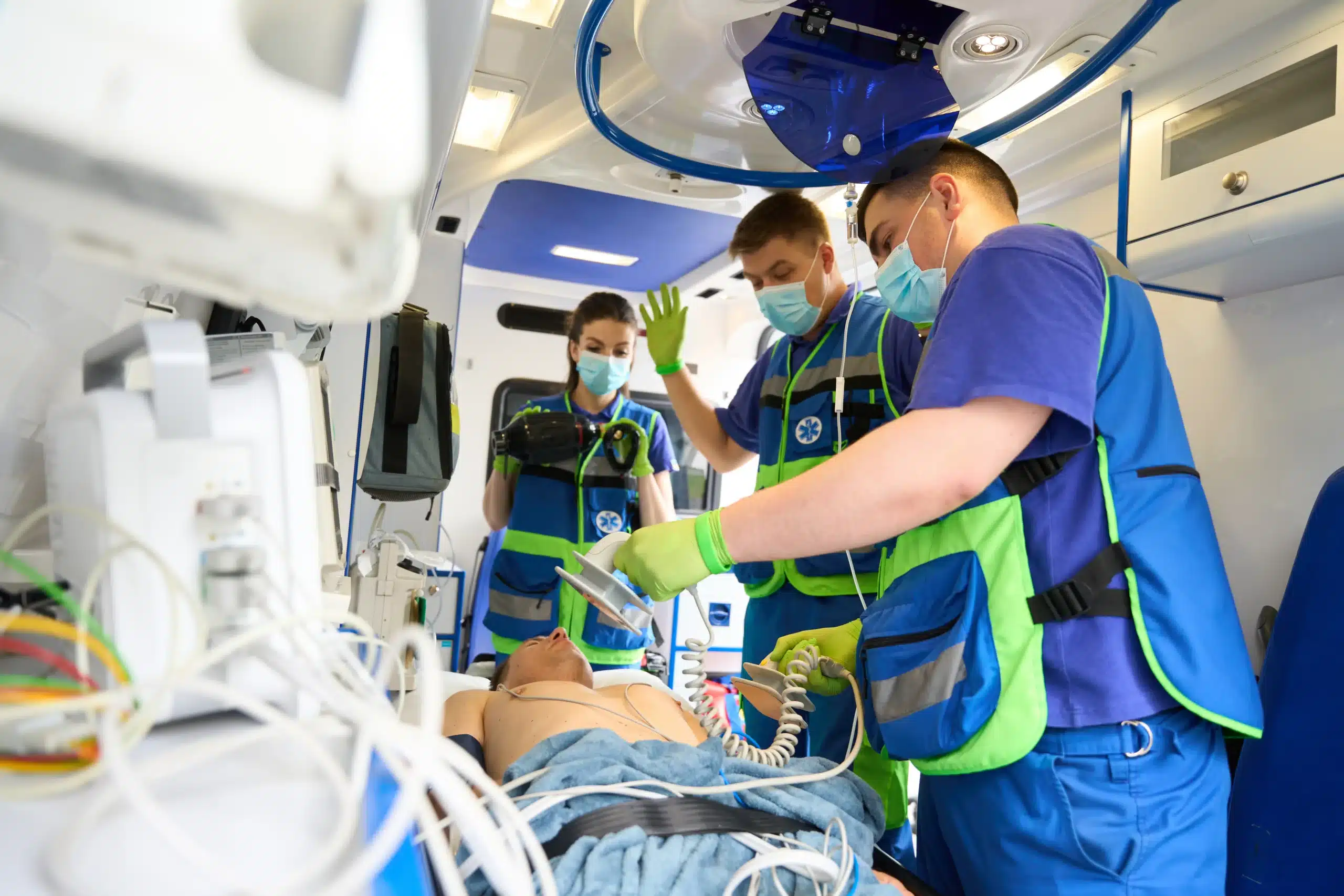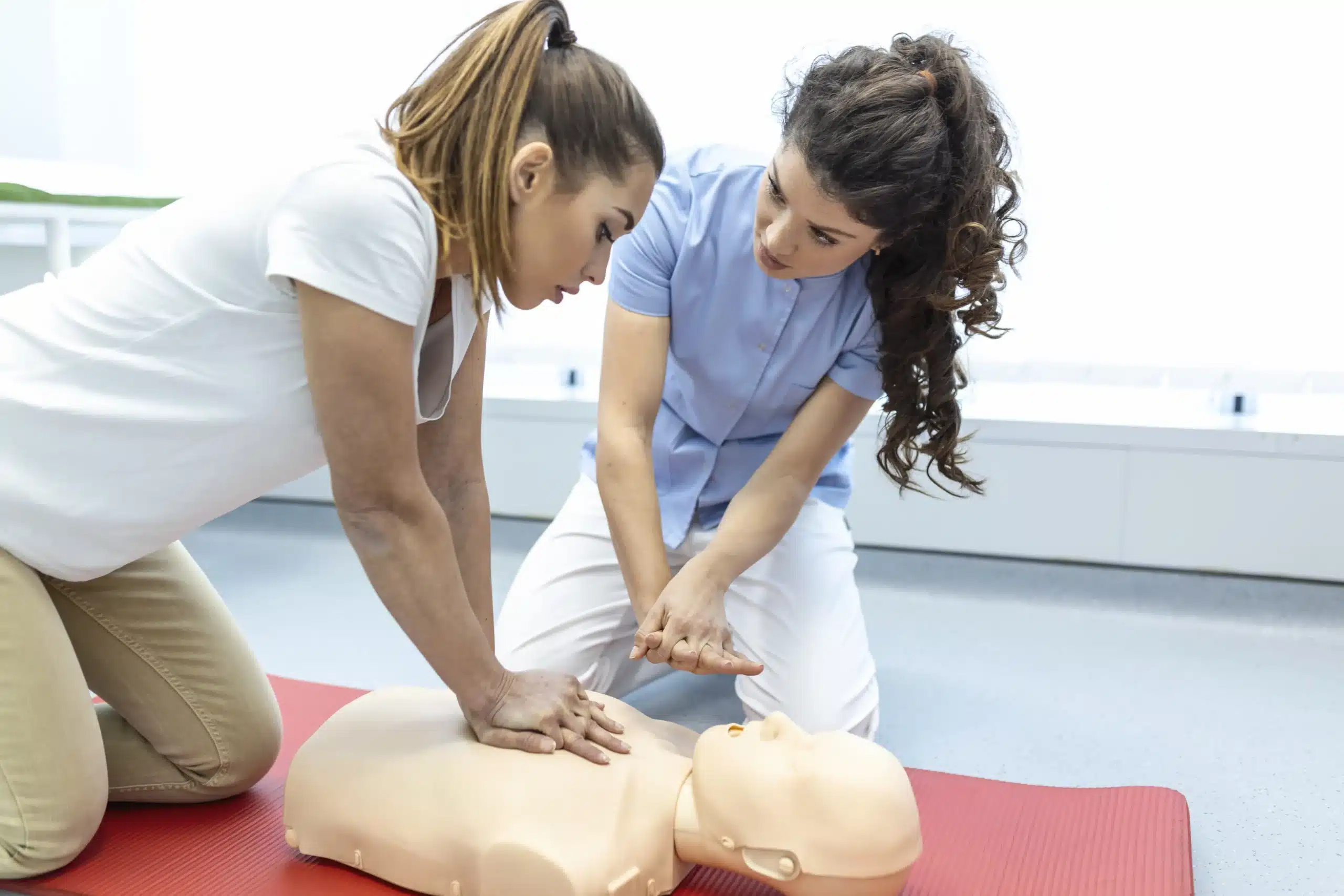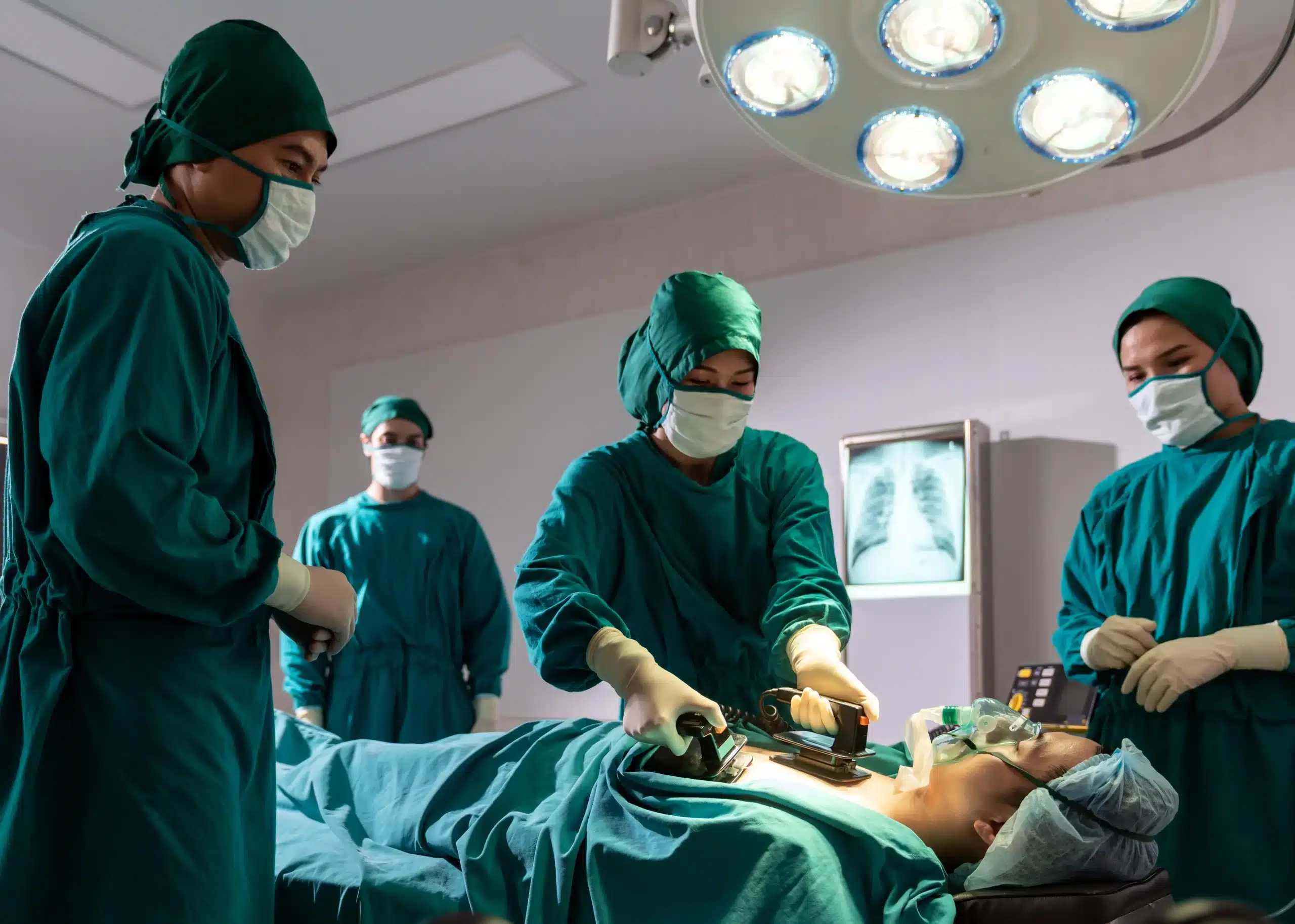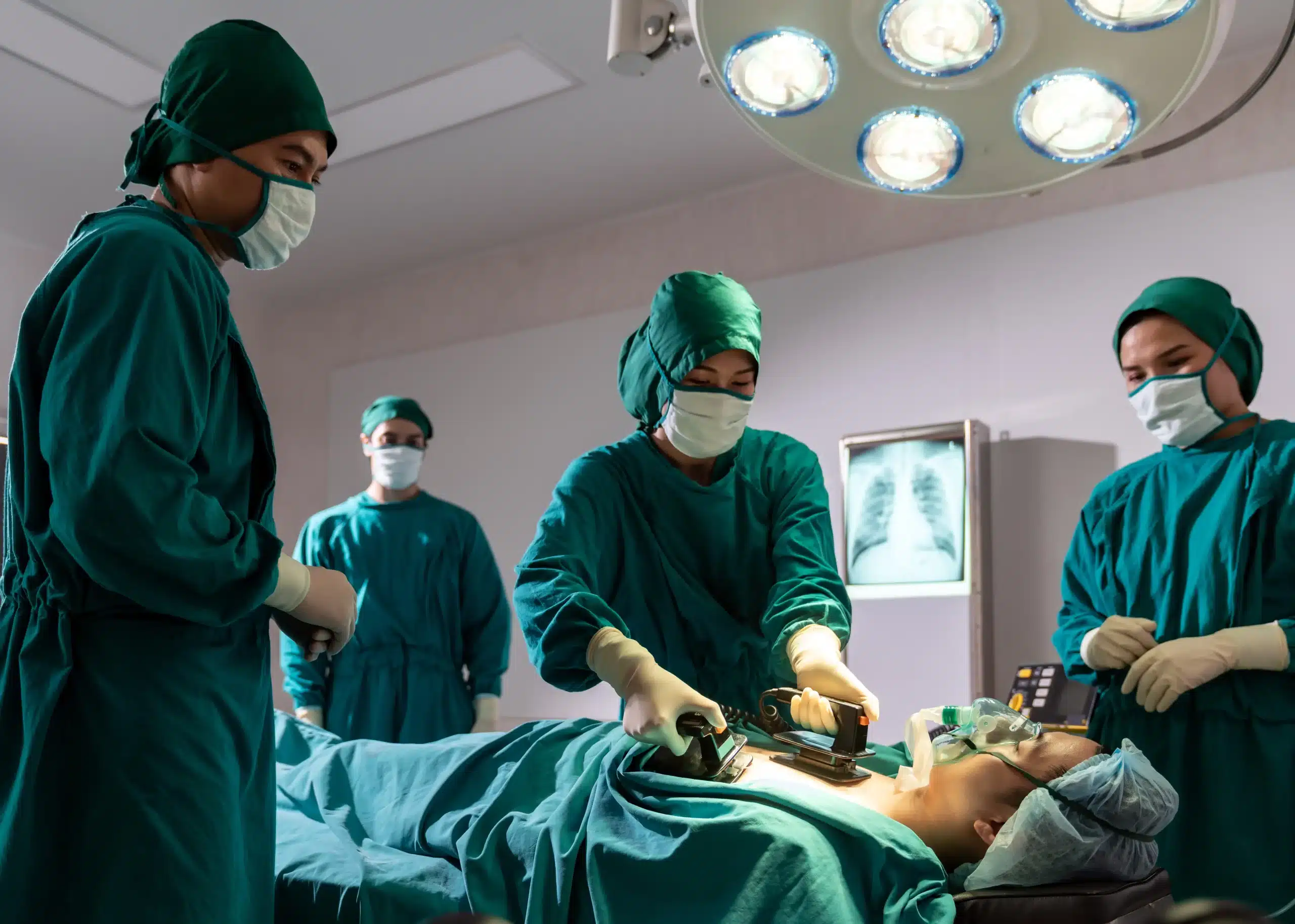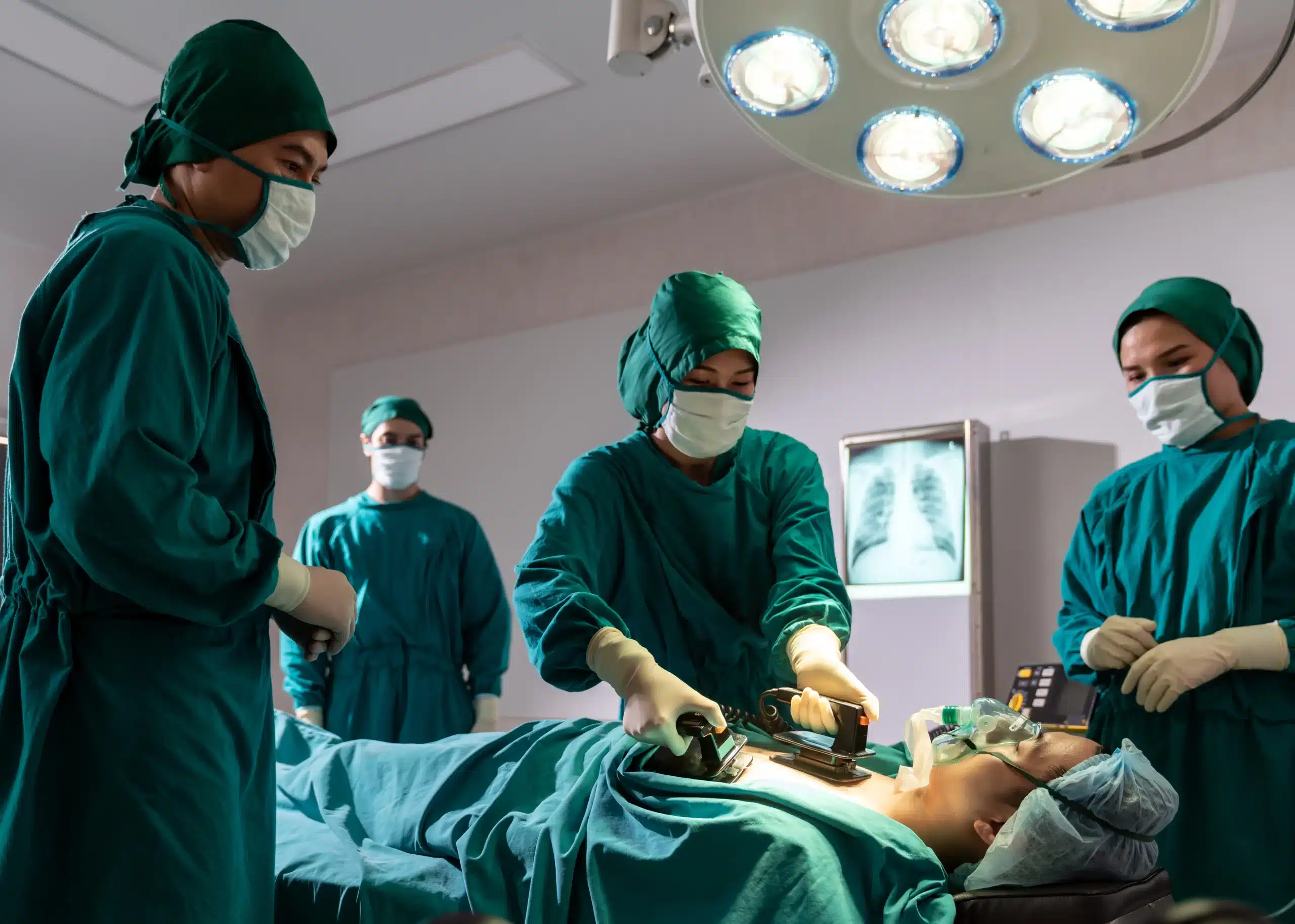For those entrusted with the care of children, being prepared for medical emergencies is not just important—it’s essential. PALS certification courses in San Rafael provide healthcare professionals and caregivers with the advanced training needed to respond confidently and effectively in critical situations involving infants and children. This article will serve as your comprehensive guide to PALS certification in San Rafael, covering everything from course content and registration to renewal requirements and the long-term value of this specialized training. Whether you’re looking to advance your career or simply enhance your skills, this guide will provide you with the information you need to make informed decisions about your PALS certification journey.
Key Takeaways
- PALS certification equips you with essential skills: It’s the toolkit you need for handling pediatric emergencies, from respiratory distress to cardiac events. The blend of online learning and hands-on practice ensures you’re prepared.
- Choosing the right PALS course matters: Consider factors like provider reputation, class size, and schedule flexibility. Look for experienced instructors and a course format that suits your learning style. San Rafael CPR Classes offers convenient options worth exploring.
- Staying current is key: PALS certification is valid for two years. Plan for renewal and keep up with the latest guidelines in pediatric emergency care to provide the best possible care.
What is PALS Certification & Why is it Important?
PALS (Pediatric Advanced Life Support) certification is a specialized course designed to equip healthcare providers with the knowledge and skills to effectively manage pediatric emergencies. Think of it as an essential toolkit for those working with infants and children, providing the confidence to respond swiftly and skillfully in critical situations. From assessment to intervention, PALS empowers professionals to deliver the highest standard of care during challenging moments.
Key PALS Training Components
PALS training isn’t just about lectures; it’s a dynamic blend of interactive learning and hands-on practice. The curriculum covers essential topics, including recognizing and responding to respiratory distress, managing cardiac emergencies, and understanding the nuances of pediatric pharmacology. PALS courses often incorporate realistic simulations, allowing participants to apply their knowledge in a safe and controlled environment. This practical approach reinforces learning and builds the muscle memory needed to perform life-saving procedures.
Why Healthcare Professionals Need PALS
For any healthcare professional regularly interacting with children, holding a current PALS certification is more than just a credential—it’s a testament to their commitment to providing excellent care. The American Heart Association emphasizes the importance of adhering to the most up-to-date guidelines, ensuring that certified providers use the latest evidence-based practices. This commitment to ongoing education translates to improved patient outcomes and reinforces the trust placed in healthcare professionals. Beyond the clinical benefits, PALS certification can also enhance career opportunities, demonstrating a dedication to advanced pediatric care.
Find PALS Certification in San Rafael
Ready to get your PALS certification? Here are a few providers in the San Rafael area to explore:
San Rafael CPR Classes
San Rafael CPR Classes offers convenient PALS training to fit your schedule. They hold classes seven days a week at their location at 4340 Redwood Hwy, Suite F-154, San Rafael, CA 94903, with extended hours from 8 am to 10 pm. This makes it easier to find a class time that works, whether you’re a busy healthcare professional or have other commitments. Learn more about their PALS certification courses.
Safety Training Seminars
Safety Training Seminars, a woman-owned American Heart Association Training Center, provides high-quality PALS training in San Rafael. Offering courses every day of the week gives you flexible scheduling options. They also offer other essential certifications like BLS, ACLS, CPR, and First-aid. This can be a great option if you’re looking to knock out multiple certifications at once. Visit their website to explore CPR, BLS, ACLS, PALS, & First-aid classes.
Bay Area CPR (Safety Training Seminars)
Bay Area CPR, powered by Safety Training Seminars, offers another convenient option for AHA-approved PALS certification in San Rafael. With daily classes, excellent customer service (available from 8 am to 10 pm), and a low-price guarantee, they focus on providing accessible and affordable training. Their commitment to customer service can make the certification process smoother and less stressful. Check out their low-price guarantee.
Other Local Providers
While these are a few solid options, remember that many other providers offer PALS certification in the wider San Rafael area. Before you commit to a course, make sure you meet the PALS class requirements, including a current BLS certification and relevant medical background. Doing your research and comparing different providers can help you find the best fit for your needs and budget.
Course Structure & Duration
PALS certification courses in San Rafael blend online learning with hands-on skills practice. This hybrid approach lets you learn the material at your own speed and then demonstrate your skills in person. Let’s break down how it works:
Online Prep & Coursework
The online portion of the PALS course typically takes 3–4 hours to complete. This part covers essential knowledge and theory you’ll need for pediatric advanced life support. You’ll work through modules, interactive exercises, and case studies, all designed to prepare you for the in-person skills session. San Rafael CPR Classes offers this online coursework through the American Heart Association, ensuring high-quality, up-to-date training.
In-Person Skills Practice & Simulations
After completing the online coursework, you’ll move on to the in-person skills check. This portion usually lasts around 30–40 minutes and takes place at one of the many testing sites. During this session, you’ll practice essential skills like pediatric assessment, airway management, and effective CPR techniques. The instructors use interactive simulations and hands-on practice to reinforce what you learned online and build confidence in your abilities. You can find more information about the PALS course and skills check on the San Rafael CPR Classes website.
Time Commitment & Scheduling
One of the advantages of this blended learning approach is flexibility. San Rafael CPR Classes offers classes Monday through Sunday, from 7 am to 6 pm, accommodating various schedules. While the in-person skills check is relatively short, the entire PALS course takes about eight hours to complete, including the online portion. This manageable time commitment makes it easier for busy professionals and healthcare providers to fit the training into their lives.
Prerequisites & Registration
This section covers everything you need to know about registering for a PALS course in San Rafael, from prerequisites to the sign-up process.
PALS Prerequisites (Including BLS)
Before enrolling in a PALS certification course, you’ll need a current Basic Life Support (BLS) certification. This is fundamental, as PALS builds upon the core skills taught in BLS. Ensure your BLS certification is current before signing up. Some providers, like San Rafael CPR Classes, may offer combined BLS and PALS courses if you need to renew your BLS or obtain it for the first time. A background in pediatric care is also often recommended, though not always required.
Signing Up for Courses
San Rafael CPR Classes offers various courses, including BLS, ACLS, PALS, and First Aid. They provide flexible scheduling and a low price guarantee, making it easier to fit the training into your schedule. With classes held daily and a commitment to excellent customer service, you can expect a smooth registration experience. Visit their website for the latest schedule and to register for a course.
Required Documents & Materials
Once registered, prepare for the course itself. Review the PALS Provider Manual and complete the pre-course self-assessment. This preparation will help you maximize the in-person training. Check with your chosen provider for a complete list of required materials and any pre-course work they suggest.
Course Content & Skill Development
PALS certification goes beyond basic life support, equipping healthcare providers with specialized knowledge and practical skills to manage pediatric emergencies effectively. This section breaks down the core components of PALS training and highlights the key skills you’ll develop.
Core PALS Topics
The PALS course covers a range of essential topics, providing a comprehensive understanding of pediatric emergency care. You’ll receive in-depth instruction on pediatric assessment, learning to quickly and accurately evaluate a child’s condition. Respiratory management techniques form a crucial part of the curriculum, teaching you how to address breathing difficulties in young patients. The course also focuses on cardiovascular emergencies, preparing you to handle critical situations like cardiac arrest and arrhythmias. Beyond these core areas, PALS also covers topics such as shock, fluid management, and post-resuscitation care.
Hands-on Training
PALS certification isn’t just about theory—it’s about practical application. The program combines online learning with hands-on training to ensure you develop the necessary skills. You’ll begin with an online portion that typically takes around 3-4 hours to complete, providing foundational knowledge and preparing you for the in-person skills session. This in-person training involves skills testing and simulations, giving you the opportunity to practice techniques under the guidance of experienced instructors. With over 60 testing sites available, you can easily find a convenient location to complete this crucial part of the certification process.
Key Skills for Pediatric Emergencies
PALS training equips you with the skills to confidently manage pediatric emergencies. You’ll learn how to perform effective CPR on infants and children, adapting techniques to their specific physiological needs. The course emphasizes rapid assessment and intervention, teaching you to quickly identify and address life-threatening conditions. You’ll also develop proficiency in using specialized equipment, like defibrillators and airway management devices. PALS training is regularly updated to reflect the latest best practices, ensuring you’re prepared to provide the highest quality care in any pediatric emergency.
PALS Certification: Cost & Value
Getting your PALS certification is an investment in your career and the children in your care. Let’s break down the costs associated with PALS certification in San Rafael and explore the value it offers.
Average San Rafael Course Prices
PALS course fees in San Rafael vary based on the training center and course type (initial certification or recertification). San Rafael CPR Classes offers competitive rates and claims to have the lowest prices in Marin County. Check their website for the most up-to-date pricing. It’s always wise to compare prices from different providers, including Safety Training Seminars and Bay Area CPR, to ensure you’re getting a fair price. Remember that choosing a reputable provider with experienced instructors is key to receiving high-quality training.
Discounts & Price Matching
Many training centers offer discounts for group registrations, students, or returning customers. Ask about available discounts when inquiring about courses. San Rafael CPR Classes also has a low price guarantee and price matching, so you can feel confident you’re getting the best deal. This is especially helpful if you’re coordinating training for a group of colleagues or employees.
Career Benefits & ROI
While there’s a financial commitment to obtaining PALS certification, the return on investment can be substantial, especially for healthcare professionals. American Heart Association PALS certification is highly respected in the medical field and demonstrates your commitment to providing excellent patient care. It can create new career opportunities, increase your earning potential, and enhance your professional credibility. Beyond career advantages, the skills you gain can make a real difference in a pediatric emergency, giving you the confidence to act quickly and effectively. The peace of mind from knowing you’re prepared for critical situations is invaluable.
Prepare for Your PALS Certification
Getting ready for your PALS certification involves a few key steps. From reviewing the right materials to understanding common challenges, thorough preparation sets you up for success.
Recommended Study Materials & Resources
Before your course begins, make sure you meet all the PALS certification requirements. This typically includes a current Basic Life Support (BLS) certification and a background in pediatric care. Review the PALS Provider Manual and complete the pre-course self-assessment to build a solid foundation.
Tips for Course Success
One benefit of training with providers like San Rafael CPR Classes is receiving your certification card the same day you complete your skills test. Knowing this helps you plan ahead. A current pediatric BLS certification is the main prerequisite for PALS certification, so confirm yours is current. The American Heart Association’s RQI program offers a streamlined path to certification for medical professionals seeking BLS, ACLS, and PALS.
Common Challenges & Solutions
One common challenge is ensuring you’ve met all the prerequisites, especially having a current BLS certification. Confirming this early avoids surprises. Scheduling can also be a hurdle. Look for providers with flexible course times to fit your schedule. Finally, use available resources, like practice exams or study groups, to reinforce your learning.
Choose the Right PALS Course in San Rafael
So, you’re ready to commit to your PALS certification. Excellent! Now, let’s find the perfect course in San Rafael that aligns with your needs.
Factors to Consider When Choosing a Provider
Finding the right fit is key to a positive learning experience. Think about your priorities. Is it schedule flexibility? A convenient location in San Rafael, Corte Madera, or Fairfax? Or a program known for its supportive instructors? San Rafael CPR Classes offers a range of courses—including BLS, ACLS, PALS, and First Aid—with flexible scheduling and a low price guarantee. See if their offerings meet your needs. Beyond our programs, consider these factors:
- Reputation and Accreditation: Look for providers with a solid track record and proper accreditation, ensuring the course meets industry standards. The American Heart Association’s RQI program is a popular choice for its efficient certification process. Check out our RQI classes for more information.
- Course Format and Delivery: Do you prefer blended learning with online modules and in-person skills sessions? Or a fully in-person course? Choose a format that complements your learning style.
- Instructor Expertise: Experienced, certified instructors who are passionate about teaching and have a deep understanding of pediatric emergency care can make all the difference.
- Class Size: A smaller class size often means more personalized attention and interaction with the instructor. If you thrive in a close-knit learning environment, prioritize this.
- Location and Schedule: Choose a course location that’s easy to get to and class times that fit your schedule. Our Northern California CPR directory might be a helpful resource.
Questions to Ask Before Enrolling
Once you’ve narrowed down your options, contact the training providers directly. Asking clarifying questions can give you valuable insights. Here are a few to get you started:
- What are the prerequisites for this PALS course? Make sure you meet the requirements, which usually include a current BLS certification and relevant healthcare experience. Our website provides details on BLS certification.
- Can you explain the course content and learning objectives? This will give you a clear idea of what to expect. You can also explore our EMSA Child Care Health & Safety course for related information.
- What study materials are recommended or required? Knowing this in advance helps you prepare. Reviewing the PALS Provider Manual and completing the pre-course self-assessment is often a good idea.
- What’s the total cost, and are there payment plans? Understanding the financial commitment upfront is important.
- What’s the PALS certification renewal process? Knowing the requirements helps you stay prepared.
- What’s the instructor-to-student ratio? This gives you a sense of how much individual attention you can expect.
- Can I speak with past students or read testimonials? Hearing from others can offer helpful perspectives.
By considering these factors and asking the right questions, you can confidently choose a PALS course in San Rafael that works for you. Good luck!
Maintain Your PALS Certification
Once you’ve earned your PALS certification, staying current is key to ensuring you’re always prepared to provide the best possible care in pediatric emergencies. Here’s what you need to know about maintaining your PALS credentials:
Renewal Requirements
PALS certification is valid for two years. To maintain your certification, complete a PALS renewal course before the expiration date. Don’t let it lapse! Keep track of your credentials and give yourself plenty of time to find a course and complete the requirements. This proactive approach will prevent any gaps in your certification and demonstrate your commitment to providing high-quality care.
Continuing Education
Many PALS courses offer Continuing Medical Education/Continuing Education (CME/CE) credits. These credits can be valuable for meeting your ongoing professional development requirements. Check with your certifying body or employer to see how PALS-related CME/CE credits can contribute to your overall education goals.
Staying Current with Pediatric Emergency Care
The American Heart Association (AHA) regularly updates the PALS curriculum to reflect the latest advancements and best practices in pediatric emergency care. By staying on top of these updates through renewal courses, you can ensure you’re equipped with the most current knowledge and skills. This commitment to ongoing learning not only benefits your professional development but also enhances the quality of care you provide to young patients. Staying informed about the latest guidelines and techniques is crucial for any healthcare professional dedicated to pediatric care. For more information on PALS, check out our course details.
Related Articles
- PALS HeartCode Fairfax: Your Certification Guide – San Rafael CPR Classes
- PALS HeartCode San Rafael: Your Pediatric Advanced Life Support Guide – San Rafael CPR Classes
- PALS Certification Corte Madera: Your Comprehensive Guide – San Rafael CPR Classes
- BLS ACLS PALS Training in San Rafael – San Rafael CPR Classes
Frequently Asked Questions
Why is PALS certification important?
PALS certification is crucial for healthcare providers who work with children. It gives them the skills to handle pediatric emergencies, from assessing a child’s condition to performing life-saving interventions. This specialized training goes beyond basic life support, focusing on the unique needs of infants and children. It also demonstrates a commitment to high-quality care, which can enhance career opportunities.
What does PALS training cover?
PALS training covers a wide range of topics essential for pediatric emergency care. The curriculum includes pediatric assessment, respiratory and cardiac emergencies, shock management, and post-resuscitation care. The courses use a blended learning approach, combining online modules with hands-on simulations to reinforce learning and build practical skills.
How do I get PALS certified in San Rafael?
Several providers offer PALS certification in San Rafael. Research different training centers, compare costs and schedules, and choose one that fits your needs. Make sure you meet the prerequisites, which typically include a current BLS certification. Contact the provider directly to register and ask any clarifying questions you may have.
What are the prerequisites for PALS certification?
The main prerequisite for PALS certification is a current BLS (Basic Life Support) certification. Some providers may also recommend or require a background in pediatric care. It’s essential to confirm the specific requirements with your chosen training center before enrolling in a PALS course.
How can I maintain my PALS certification?
PALS certification is valid for two years. To maintain your certification, you’ll need to complete a PALS renewal course before it expires. Staying up-to-date with the latest guidelines and best practices in pediatric emergency care is crucial for providing the best possible care. Continuing education and professional development opportunities can also help you maintain your skills and knowledge.
